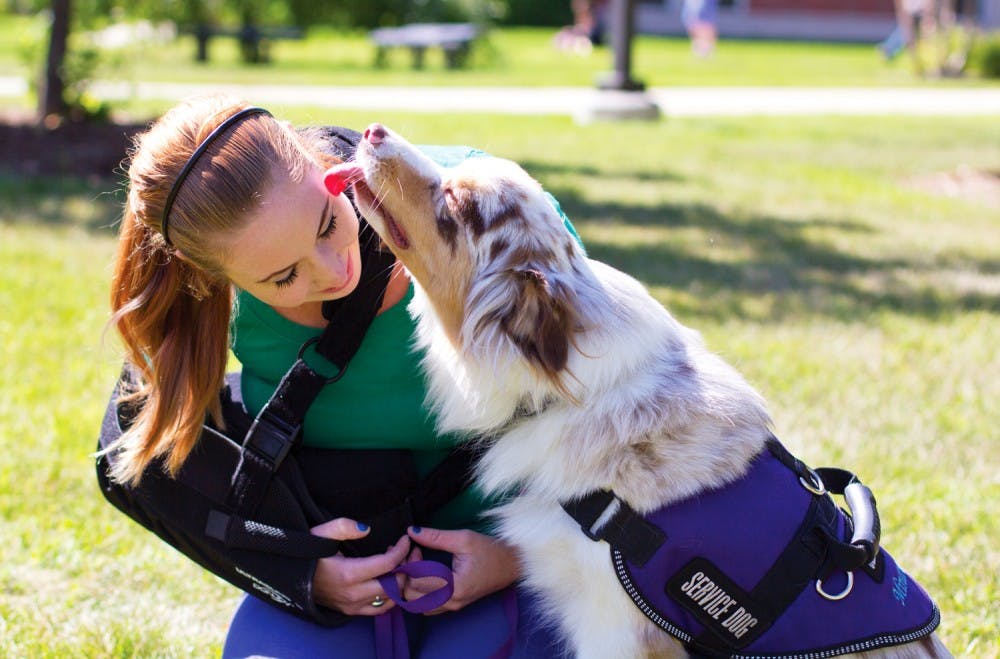A K-9 cure
For those facing anxiety, service dogs can offer support

After unfortunate circumstances in her childhood, East Lansing senior Carmen Espinosa sought out treatment for her anxiety. After various treatment methods, her service dog, Minerva, seemed to be her best option.
“Because of her, I no longer use any medication to treat anxiety,” Espinosa said. “Having Minerva has opened so many doors.”
Originally, Espinosa got Minerva to train her to become a therapy dog to use in her future practice as a clinical psychologist. Once Espinosa noticed her dog reacting to her anxiety by distracting her focus elsewhere, she talked to her doctor about using Animal Assisted Interventions (AAI).
“I now have first hand knowledge on how to train service dogs for psychiatric assistance,” Espinosa said. “Also, having her has helped regulate my circadian rhythm. She makes me go to bed at a reasonable time and will even start getting fussy if we are out too late and she wants to go home or if I'm trying to study all night and she wants to go to bed."
Having Minerva as her service dog has changed Espinosa’s life incredibly. Simple tasks such as going to work, buying groceries and attending classes on campus have become possible for her. Before Minerva, these tasks were only performed if necessary, if at all.
Originally, Espinosa would typically take six to nine credits per semester online as a part-time student to avoid going to campus. Sometimes, going to class was so overwhelming that Espinosa would not attend.
“Having Minerva as my service dog has provided so much more in my life than I could have ever anticipated and has greatly impacted and improved literally every aspect of my life,” Espinosa said. “I have not had to miss class due to my anxiety being too high, and as a result, I've been able to go back to being a full-time student and will be graduating with a B.S. in psychology this December.”
Because of the opportunity Espinosa has been given by the AAI, she has been able to meet so many people and connect with them on a personal level. She has also been able to teach others about Minerva and what she as well as other service dogs can do for people.
“I've gotten a chance to meet so many people and educate people about the use of service dogs for disabilities aside from Guide Dogs for the blind because of her,” Espinosa said. “We constantly get stopped and asked what she does or whether or not I'm training her for other people.”
When service animals are out in public, they are at work. Espinosa could not stress this factor enough. Getting the animal’s attention can cause them to lose focus and cause problems for their owner.
“If you see a dog in a restaurant, grocery store, or walking around campus, please, don't try and get the dogs attention by whistling at it or talking to it,” Espinosa said. “They are doing a job and need to focus, and always ask before petting a service dog. You don't know if any dog is reactive, and it could cause someone to get hurt.”
For more information on service animals, you can visit the website http://www.ada.gov



